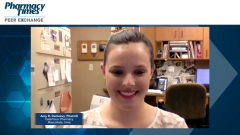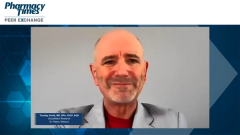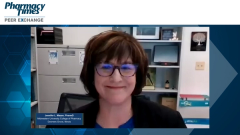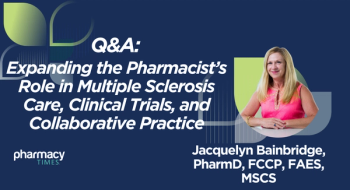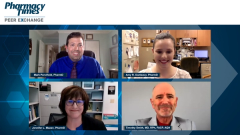
5-HT1F Receptor Therapy for Migraine
Special considerations for counseling patients and prescribing lasmiditan, a targeted 5-HT1F therapy approved as acute migraine treatment.
Episodes in this series

Mark Percifield, PharmD: The FDA has approved a few new drugs that have been discovered. Maybe you could talk about 1 of those, Timothy: the 5-HT1F receptor agonist, lasmiditan, which was recently approved for the treatment for acute migraine.
Timothy Smith, MD, RPh, FACP, AQH: Lasmiditan is marketed under the brand name of Reyvow. It has been on the market for about 18 months as of this taping. It came on the market toward the end of 2019, or in early 2020. This is a 5-HT1F receptor agonist. These are serotonin receptors, and this is a serotonin agonist, but it’s not a triptan. The distinction there is that the triptans have their primary receptor subtype of focus: the 5-HT1B and 1D receptor subtypes. 5-HT1F is a little different. It has a central distribution in the brain stem, in some of the higher centers, and also, peripherally, the trigeminal nerve. By stimulating that receptor, you can diminish inflammation and pain signaling along the trigeminal vascular system. The important thing is that it doesn’t cause vasoconstriction. That’s the seminal difference between lasmiditan and agents in the triptan class.
That said, because it does have a central penetrant and central nervous system effects that enhance its effectiveness, we think it also causes some central nervous system adverse effects such as dizziness, fatigue, paresthesia, sedation, and the like. It carries with it an 8-hour driving restriction after dosing. That’s very important for us to understand. When patients are getting this prescription, if they get a prescription for a lasmiditan fill, they need to be advised that if they can’t stay out from behind the wheel for 8 hours after dosing, then they shouldn’t take the medication. That’s an important distinction for that drug.
Transcript edited for clarity.
Newsletter
Stay informed on drug updates, treatment guidelines, and pharmacy practice trends—subscribe to Pharmacy Times for weekly clinical insights.

